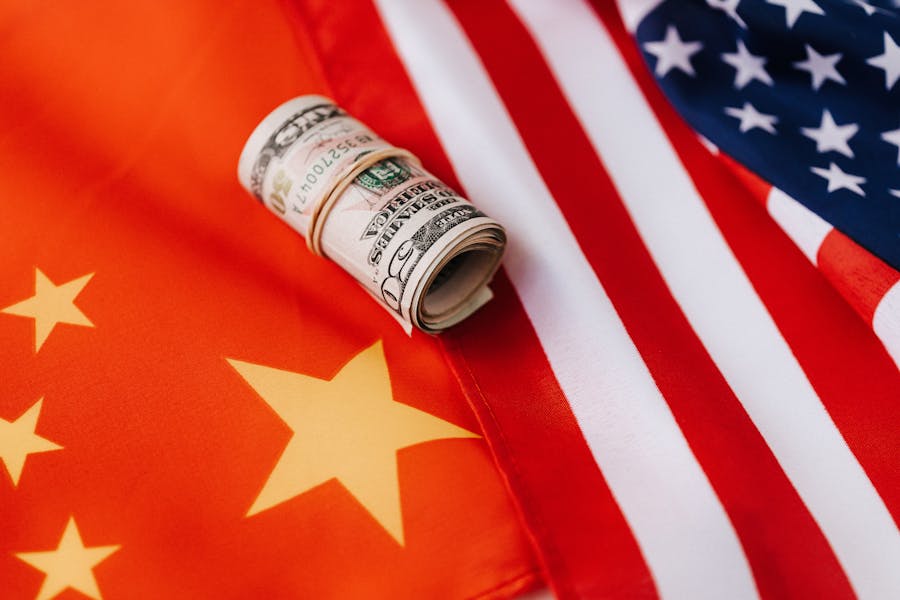WASHINGTON/BEIJING, Dec 20 (Reuters) – After a whirlwind year featuring spy balloons, semiconductor battles, and military showdowns, the U.S. and China are at a crossroads. A November summit between President Joe Biden and President Xi Jinping hinted at a desire to stabilize ties. However, 2024 looms with challenges that could reignite tensions between the world’s two largest economies.
From pivotal elections in Taiwan and the United States to escalating trade wars and technology disputes, both nations are bracing for a year that promises turbulence. The stakes are high, and the ripple effects could shape global politics and economics.
Taiwan Elections: The First Domino to Fall
The spotlight will first shift to Taiwan, where presidential and legislative elections on January 13 could set the tone for U.S.-China relations in the months ahead. Vice President Lai Ching-te, a member of Taiwan’s ruling Democratic Progressive Party (DPP), leads in the polls alongside his running mate Hsiao Bi-Khim. Both candidates have been labeled an “independence double-act” by Beijing, which views the island as a breakaway province.
China’s rhetoric has been stark, framing the election as a choice between “peace and war.” Military drills near Taiwan have intensified, reminiscent of the 1996 crisis when missile tests led the U.S. to deploy an aircraft carrier task force to the region. While Xi is reportedly keen to avoid overt conflict, analysts warn of heightened military and political pressure, especially if Lai, whom Beijing sees as a provocateur, secures victory.
“This election is a powder keg for cross-strait relations,” said a regional expert. “Beijing’s response will set the stage for how the U.S. and its allies react, especially if China escalates military maneuvers.”
Taiwan, for its part, remains vigilant, monitoring not just potential military provocations but also cyber interference and disinformation campaigns.
The U.S. Election: Will Trump Return?
As Taiwan navigates its political future, the U.S. will gear up for its own high-stakes presidential election. Barring surprises, the 2024 race will likely see a rematch between President Biden and former President Donald Trump. For Xi Jinping and his administration, the outcome could be a game-changer.
“Trump’s return would be Beijing’s worst nightmare,” said Yun Sun, director at the Stimson Center in Washington. “His presidency marked a period of relentless escalation in tensions, from trade wars to COVID-19 accusations.”
While Biden has maintained a tough stance on China—retaining Trump-era tariffs, strengthening alliances, and implementing semiconductor export controls—his administration is seen as predictable. In contrast, Trump’s erratic approach left Beijing grappling with uncertainty.
“Under Trump, there was no meaningful dialogue. It was all about escalation,” Sun added. However, Trump’s isolationist tendencies—particularly his skepticism of alliances—could ironically play into China’s hands. A U.S. retreat from global partnerships would ease the strategic pressure that Beijing often complains about.
Xi’s focus will likely remain on maintaining stability in U.S.-China relations until the electoral dust settles. However, the looming possibility of a Trump victory could influence Beijing’s strategy throughout the year.
Semiconductors: The Next Battlefield
If Taiwan and the U.S. elections set the geopolitical tone, the fight over semiconductors will shape the economic battlefield in 2024. The U.S. has tightened export controls to deny China access to advanced chip-making technology, with additional measures expected in the coming months.
The restrictions have already created headaches for Beijing, which relies on foreign technology to advance its semiconductor industry. In retaliation, China has limited exports of key rare earth metals like gallium and germanium, which are critical for chip production. This move has significantly reduced global supplies, signaling that Beijing is willing to weaponize its resource dominance.
“These restrictions are a warning shot,” said a tech industry analyst. “China wants the world to know it can disrupt supply chains if pushed too far.”
Meanwhile, the U.S. is ramping up enforcement against companies and individuals attempting to circumvent these controls. A newly established task force has investigated violations, with significant penalties expected in 2024.
“The tension over semiconductors is not just about economics,” said a policy expert. “It’s about who controls the future of technology and innovation.”
The Risk of Unintended Escalation
Underlying all these flashpoints is the risk of unintended escalation. Military drills near Taiwan, aggressive trade policies, or a diplomatic misstep could spiral into broader conflict. Biden and Xi recognize the dangers, as evidenced by their November meeting, but the margin for error is slim.
“Both leaders want to avoid open conflict, but their respective political pressures make it difficult to compromise,” said a senior diplomat. “In 2024, even small incidents could quickly become crises.”
The stakes for the global community couldn’t be higher. The ripple effects of U.S.-China tensions will be felt worldwide, from supply chain disruptions to military confrontations.
2024: A Defining Year
The world will watch the U.S. and China closely as the year unfolds. Will cooler heads prevail, or will this be the year the uneasy detente shatters? With elections, trade battles, and military posturing all converging, one thing is clear: 2024 will be a defining year for U.S.-China relations—and the world.

